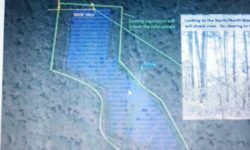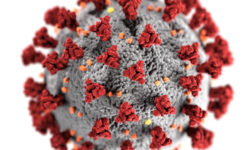A joint conference of boards of health (BOH) in municipalities effected by eastern equine encephalitis (EEE), together with representatives of the Massachusetts Department of Public Health (MDPH) and Massachusetts Department of Agricultural Resources (MDAR), was held last Tuesday morning to discuss the status of actions taken and to be taken in the state in the fight against the EEE infection.
The Dover BOH instructed Norfolk County Mosquito Control District (NCMCD) to execute two ground-level sprayings, but this was weather-dependent. Additionally, the BOH participated in state discussions resulting in the expansion of aerial spraying into Norfolk County including most, but not all, of Dover. MDAR has conducted aerial spraying in specific areas of Middlesex, Norfolk, and Worcester Counties beginning on the evening of Tuesday, September 10, and continuing for several evenings. Spraying is weather-dependent and schedules sometimes change. The spray decomposes in sunlight, and given Dover’s heavily wooded lands, the effective rate of the spray is estimated at perhaps 40 percent.
“We urge the various schools to take seriously this disease,” advised the Dover Board of Health in the wake of the conference and planning. “While the actual incidence of seriously negative outcomes is very small, that one case of human infection, were it to occur in Dover, would be not only a personal tragedy, but also a very public tragedy.
“The personal protection strategy is inexpensive, takes little time or effort and is extremely effective,” the BOH added. “We think it should be required in the case of outdoor sports.
“The absolute most effective, nearly 100 percent effective, in fact, strategy is Personal Protection,” the Board added, “because you control this, the listed steps are extremely effective, the cost is low, and you know that you are protected.”
The personal protection measures are listed as follows:
• DEET 25-35 percent applied to exposed skin. MA DPH has published approval of use of DEET for children older than 2 months and in concentration 25-30 percent. Lower concentrations (10 percent) are not effective. Use only products with EPA-registered ingredients.
• Permethrin applied to clothing (usable through up to 6 washings – kills mosquitoes on contact); alternatively, oil of lemon eucalyptus.
• Long-sleeved shirts and long-pants, where feasible, and of light-colored fabric (specifically for sports teams).
• Avoid an hour before dusk outdoors and the several hours around dawn for outside activities.
• Understand that mosquitoes are highly active in damp wooded areas, particularly in deciduous trees, even in daylight.
























